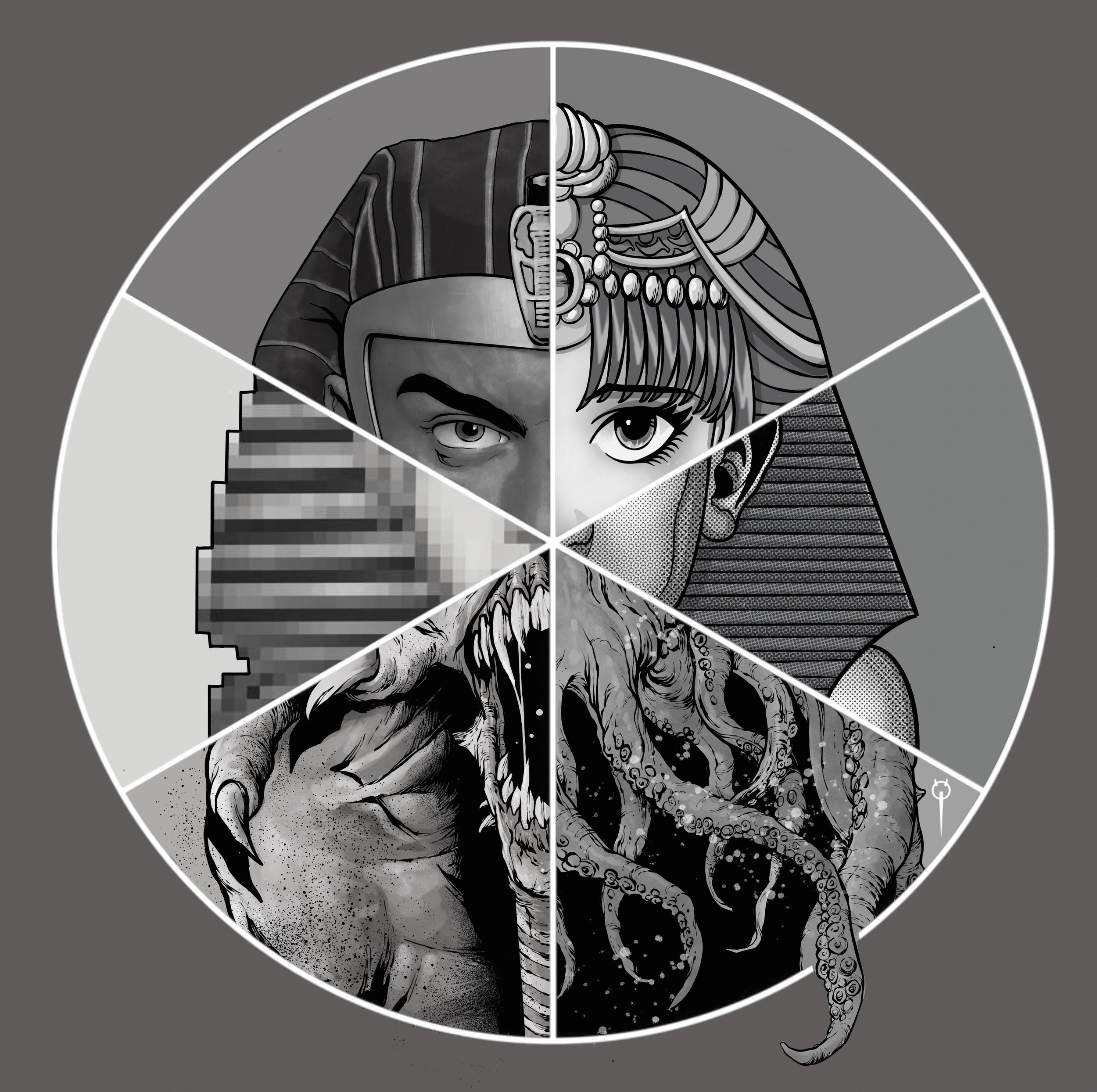Games, History and Heritage
Researchers at the Manchester Game Centre engage with games and gaming in different ways to explore life in the ancient world and how it is represented in modern contexts. We have three key areas of research: the reception of the ancient world in analogue and digital games; the use of digital technology to engage audiences with heritage; and the adoption of games as a creative method to explore historical questions. Our thematic lead is Dr Jennifer Cromwell.
Keywords
Games and History; Games and Heritage; Archaeology; the Ancient World in Video Games; Digital Heritage; Reception Studies.
Staff and PGR students working in Games, History and Heritage
Gabriele Aroni has a background in architecture and digital media, and works at the intersection of architecture, game studies, cultural heritage, and semiotics.
Suzie Cloves is a scholar within the Leverhulme Unit for the Design for Cities of the Future (LUDEC). Her PhD research uses sonic augmented realities to explore how urban landscape heritage affects our relationships with places.
Jennifer Cromwell is an Egyptologist who explores how games (re)present and contribute to public understandings of ancient Egypt in games. She is also interested in games as a creative method to examine questions about Egyptian history.
Dice on the Nile
This project, which brings together historians from Manchester, Edinburgh, Leiden, and Warsaw, uses the mechanics of Dungeons and Dragons 5e to explore the history of the early Islamic world (ca. 8th century AD). Through roleplaying, this group is interested in several questions, including: What challenges are posed by the use of historical settings in roleplaying games? What kind of ethical issues are involved in roleplaying characters from diverse cultural and historical locations? How can roleplaying games be used to explore untold stories within the ancient world (e.g., women, poor, children)?
You can hear more about the project here:
‘Dice on the Nile: TTRPG Actual Play Podcast’ (6 May 2021)
‘Dice on the Nile: Roleplaying History’ (12 May 2021)
Digital Heritage & Digital Games
This project, developed in collaboration with the Manchester Museum and the National Etruscan Museum in Rome, aims to digitize artefacts of the museums to create high-detailed “digital twins” for scholarly study, but also game ready assets. The research will investigate which artefacts are most appropriate to be utilized in digital games and develop policy guidance papers useful to cultural institutions and the entertainment industries on how to implement cultural heritage in digital games, respect local and international regulations, as well as appropriately portray cultural heritage.
Playing Ancient Egypt
This project explores how ancient Egypt is presented in board games, examining how the material features and mechanics of these games construct a popular understanding of Egyptian culture and history. Undergraduate students from history join Jennifer Cromwell in playing Egypt-themed games, as an activity through MMU’s RISE programme, and, in October 2023, three students co-presented a paper with Jennifer Cromwell on their research on these games for the Manchester Egyptology Seminar Series. As part of this project, Cromwell contributes entries on board games to the Egypopcult database.
Videogames and the Ancient World
How are ancient cultures displayed in videogames and why do they provide such a popular background for a range of game genres, from action and adventure to strategy to mobile games? Can such games be used for educational purposes, both those with intended educational resources (such as the Discovery Tour in recent Assassin’s Creed games) and those without? Dr Jenny Cromwell, is particularly interested in how aspects of ancient Egypt are incorporated within videogames as well as how such games can be used within a classroom setting.
The 2020–21 pandemic created particular problems in undertaking fieldwork. During the initial lockdown, Manchester Metropolitan University archaeologist Ben Edwards recreated the site that he works on (Bryn Celli Ddu, Anglesey, Wales) in Minecraft, together with his daughter. Not only did Minecraft Educational Edition allow him to build the site, but it is also available for others to explore.
The Manchester Metropolitan Game Centre have hosted a range of talks on history and videogames, which you can view here:
Jenny Cromwell, ‘Games and History (Assassin’s Creed Origins)’ (May 2019)
Jane Draycott, ‘Playing Cleopatra’ (Feb. 2020)
Ben Edwards, ‘Archaeology and Gaming: The Bryn Celli Ddu Minecraft Experience’ (Nov. 2020)
Publications on the topic include:
Jenny Cromwell, ‘From Pyramids to Obscure Gods: The Creation of an Egyptian World in Persona 5,” thersites: Journal for Transcultural Presences and Diachronic Identities from Antiquity to Date 14 (2022): 1–40.
Jenny Cromwell, ‘Review of: Christian Rollinger (ed.), Classical Antiquity in Video Games: Playing with the Ancient Past’ (July 2020)
Jenny Cromwell, ‘Review of: Ross Claire, Ancient Greece and Rome in Videogames: Representation, Play, Transmedia’ (Aug. 2021)
Ben Edwards et al., ‘The Bryn Celli Ddu Minecraft Experience: A Workflow and Problem-Solving Case Study in the Creation of an Archaeological Reconstruction in Minecraft for Cultural Heritage Education’, Journal on Computing and Cultural Heritage 14/2, pp. 1–16.



